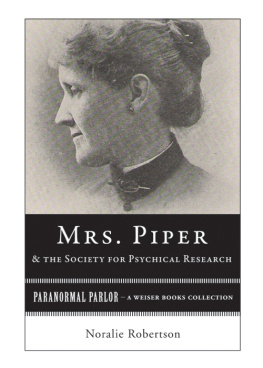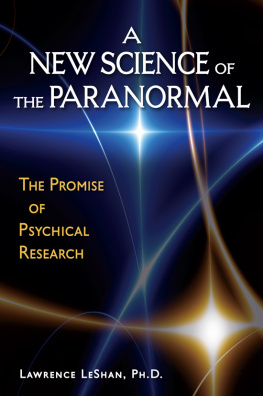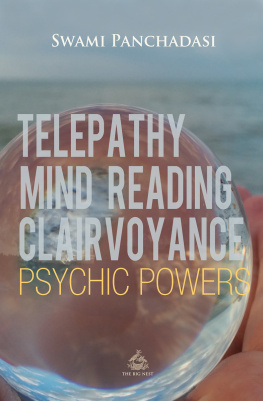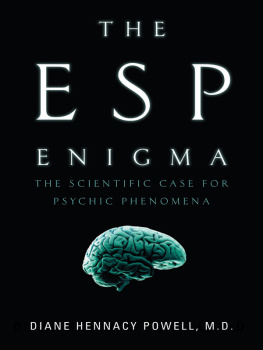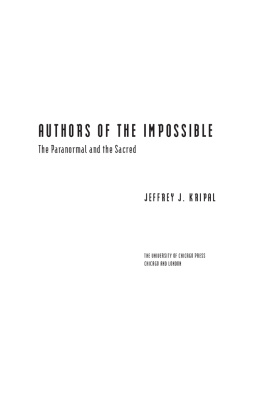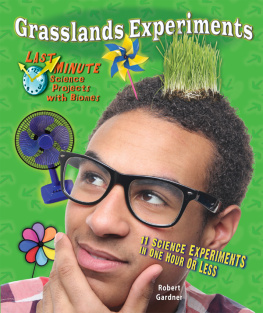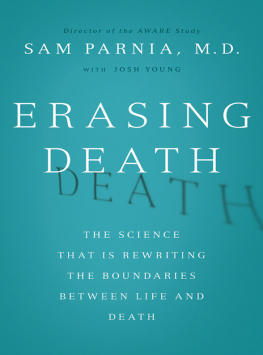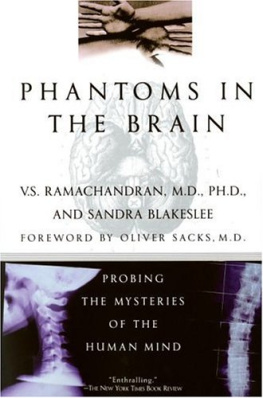
SPIRITUAL PHENOMENA
TANYA MARIE LUHRMANN and ANN TAVES, Series Editors
Common Phantoms
An American History of Psychic Science
ALICIA PUGLIONESI
Stanford University Press
Stanford, California
STANFORD UNIVERSITY PRESS
Stanford, California
2020 by the Board of Trustees of the Leland Stanford Junior University.
All rights reserved.
No part of this book may be reproduced or transmitted in any form or by any means, electronic or mechanical, including photocopying and recording, or in any information storage or retrieval system without the prior written permission of Stanford University Press.
Printed in the United States of America on acid-free, archival-quality paper
Library of Congress Cataloging-in-Publication Data
Names: Puglionesi, Alicia, author.
Title: Common phantoms : an American history of psychic science / Alicia Puglionesi.
Other titles: Spiritual phenomena.
Description: Stanford : Stanford University Press, 2020. | Series: Spiritual phenomena | Includes bibliographical references and index.
Identifiers: LCCN 2019051022 (print) | LCCN 2019051023 (ebook) | ISBN 9781503608375 (cloth) | ISBN 9781503612778 (paperback) | ISBN 9781503612785 (ebook)
Subjects: LCSH: American Society for Psychical ResearchHistory. | ParapsychologyResearchUnited StatesHistory19th century. | ParapsychologyResearchUnited StatesHistory20th century. | Parapsychology and scienceUnited StatesHistory19th century. | Parapsychology and scienceUnited StatesHistory20th century.
Classification: LCC BF1028.5.U6 P84 2020 (print) | LCC BF1028.5.U6 (ebook) | DDC 130.973dc23
LC record available at https://lccn.loc.gov/2019051022
LC ebook record available at https://lccn.loc.gov/2019051023
Cover design by Kevin Barrett Kane
Typeset by Kevin Barrett Kane in 10/15 ITC New Baskerville
CONTENTS
FIGURES
ACKNOWLEDGMENTS
This book was written with people not named in its pages. Their presence is integral to the work, and I thank them for being around in body and spiritI dont work well alone. My gratitude for the support of friends, family, and colleagues exceeds the available formulas, which I nevertheless recite here.
I received a lot of sympathetic advice. Mary Fissell never appeared fazed by the strangeness of this undertaking, helping me to realize a project which I could only dimly envision. Daniel Todes was a tremendous spiritual resource, often locating my meaning more clearly than I could myself. The Institute for the History of Medicine at Johns Hopkins, its faculty, staff, and students, created a space for wide-ranging intellectual exploration in which freedom was balanced by rigorous and meaningful criticism.
I am grateful to Ronald Walters, Rebecca Lemov, and Ruth Leys for providing feedback on the early manuscript. Conversations with Katja Guenther, Alison Winter, Andreas Sommer, Katy Price, Adrian Holme, Mikita Brottman, and many others clarified and enriched my thinking. Emily-Jane Cohen was incredibly generous in guiding this project during her time at Stanford University Press, and Faith Wilson Stein and Kate Wahl enabled its completion. Tanya Luhrmann and Ann Taves, coeditors of the Spiritual Phenomena series, lent their support and insight, and I was honored by the opportunity to discuss my research as part of Tanyas Cultures, Minds, and Medicines workshop at Stanford.
The archive that shaped this book belongs to the American Society for Psychical Research (ASPR). The societys president, Patrice Keane, granted me access to their material, went out of her way to provide staff and resources during my visits, and shared invaluable information about the societys history. Gabrielle Dean, curator of Literary Rare Books & Manuscripts at the Sheridan Libraries of Johns Hopkins, offered an invigorating perspective on the project; I also owe thanks to the Chesney Medical Archives, especially Nancy McCall and Marjorie Kehoe, the American Philosophical Society, the Rubenstein Rare Book & Manuscript Library at Duke University, the Library of Congress, and the Smithsonian Institution Archives.
My years of research and writing were supported by a number of grants and fellowships to which I owe my material survival: the History of Medicine Collections Travel Grant, David M. Rubenstein Rare Book & Manuscript Library, Duke University; the Sheridan Libraries Special Collections Research Center Graduate Student Summer Fellowship in 19th, 20th, and 21st-Century Studies; and the American Council of Learned Societies Mellon Dissertation Completion Fellowship. A postdoctoral fellowship at the Consortium for the History of Science, Technology, and Medicine supported rewriting of the manuscript with valuable input from fellows including Sarah Basham, Rosanna Dent, Lawrence Kessler, Joseph Martin, Michelle Smiley, and the consortiums wonderful director and guiding spirit, Babak Ashrafi.
Christine Ruggere, curator of the Institute of the History of Medicines collections, provided the letter of reference that I initially slipped under the barred front door of the ASPRs headquarters on West 73rd Street; without that letter this project could never have begun. This was not Christines first correspondence with the society; she joined its ranks briefly as a teenager. Her ongoing encouragement has been invaluable, as has the aid of assistant librarian Eliza Hill.
To a great extent this book emerged from the mental atmosphere of Baltimore, a city which makes many things possible; here I learned to balance critical thought with radical openness. I owe my friends thanks not just for their kind tolerance of me but also for making weird and challenging art, for living curious and committed lives. My parents, Lois and Peter, have always supported me in my efforts to build a life thats interesting and true, and I can only offer my profoundest love in return. Ive never felt very far from their influence.
This book is dedicated to the memory of Henrika Kuklick, a savagely intelligent, incisive, and riotous mentor. When Riki said that this project might be too weird, I knew I had to see it through. She was the first person to tell me, as an undergraduate, that this was work I could do and how to go about doing it.
INTRODUCTION
AT HOME, WITH GHOSTS
Theres no need to introduce you to what you already know.
We all have strange experiences, some stranger than others. People who think of themselves as basically rational might decline to call that noise in the attic a ghost or to celebrate a narrow escape from danger as a miracle. At the same time, the mechanisms of the physical world can fail to account for things seen, heard, and feltthings that take on the power of revelation in the course of individual lives and collective histories. This book maps the unstable terrain where assumptions clash with direct experience. Its a space defined by absence: the absence of logical explanation, of the fixed laws and evidence that are supposed to govern modern life. It also encompasses the people we love who are gonebeyond reach, yet always present.
The hour was high noon, and the sun was shining cheerfully. While busily smoking a cigar, and writing out my orders, I suddenly became conscious that someone was sitting on my left, with one arm resting on the table. This is how a man from Boston, with the initials F. G., remembered the day in 1876 when he saw his dead sister. Prior to her appearance, he was having a very successful business trip in St. Josephs, Missouri. Naturally I was startled and dumbfounded, almost doubting my senses; but the cigar in my mouth, and pen in hand, with the ink still moist on my letter, I satisfied myself I had not been dreaming and was wide awake.


